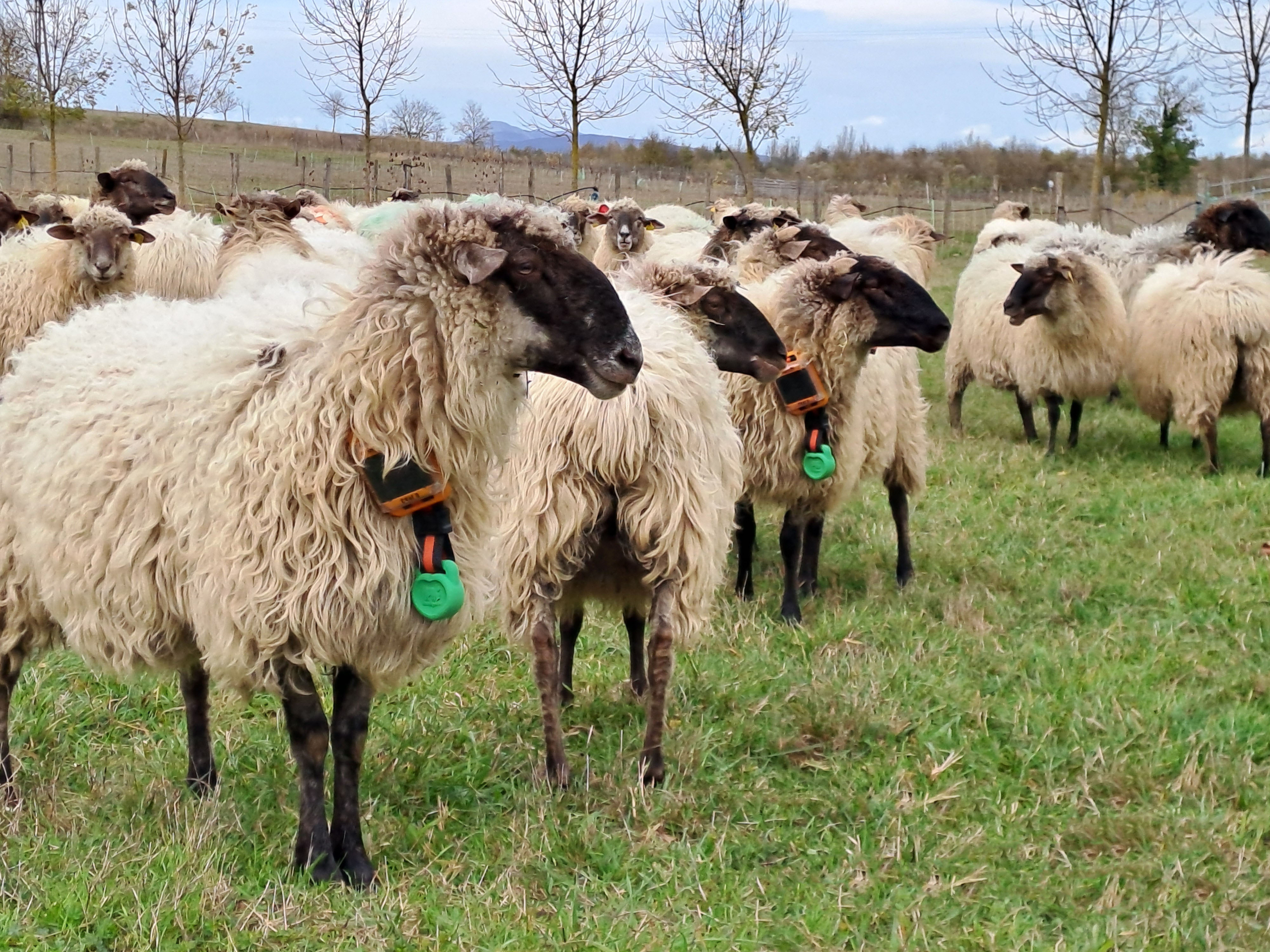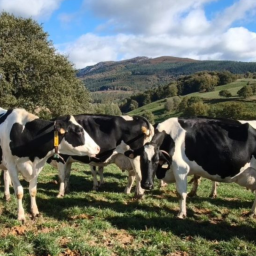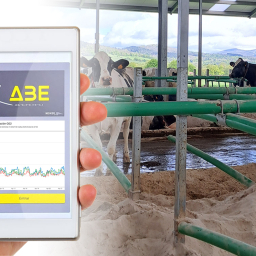NEW
Smart grazing: a digital response to new demands in the dairy sector
20 November 2025
- The NEIKER technology centre is part of the LARRESNE operational group, which seeks to promote the digitisation of livestock farming, improve herd management and strengthen product traceability.
- The initiative incorporates RUMI, a real-time monitoring system developed to record livestock activity and improve grazing control.
- The tool seeks to facilitate the daily management of livestock farms and support decision-making through individual, continuous and reliable data.
The agri-food sector must respond to new consumer demands that focus on sustainability, animal welfare and social responsibility. Consumers are looking for food that guarantees quality, traceability and respect for the environment, but current certifications do not always allow for objective verification that animals are actually grazing, i.e. feeding directly on grass. This scenario highlights the need to develop digital solutions capable of monitoring livestock and controlling grazing activity, providing reliable information for both farmers and the market.
This is the context in which LARRESNE emerged, an operational group comprising companies, technology centres and entities from the agri-food sector, with the aim of advancing the digitalisation of the livestock sector, improving herd management and strengthening the traceability of products from grazing.
Among its members is the NEIKER technology centre, an entity dependent on the Basque Government’s Department of Food, Rural Development, Agriculture and Fisheries, which plays a prominent role in the initiative through the scientific validation and adaptation of the technological solutions applied on farms.
A smart collar
Among the solutions proposed by LARRESNE is RUMI, a smart collar that combines GPS and an accelerometer to continuously record the location and activity of animals while grazing. The device has a solar panel that provides autonomy, avoiding the need for constant battery changes and ensuring that animal monitoring is continuous and reliable even on large farms or with animals grazing in remote areas.
‘The device collects information that allows the activity of the animals to be determined: whether the animal is grazing, ruminating, resting or moving around the pasture. This information is transmitted in real time to an application, making it easier for farmers to monitor each animal individually and plan the daily management of their work,’ explains Nerea Mandaluniz, a researcher in the Animal Production Department at NEIKER.
Application in livestock
The tool is optimised for cattle and will be used at LARRESNE on a dairy farm. It will also be tested on Latxo sheep, adapting the technology to the specific characteristics of each sector. In the case of cattle, the RUMI system has already been validated by NEIKER and allows farmers to receive immediate information on oestrus, calving and possible health and welfare issues. This continuous monitoring makes it easier for farmers to organise their tasks, allows them to anticipate different events and contributes to improving animal welfare. It also opens up the possibility of certifying pasture-fed milk, providing traceability, differentiation and transparency for consumers.
In order to optimise the system, NEIKER is currently working at the Behialde cattle farm, where it continuously analyses the data recorded by the device to verify its accuracy in real-time identification of activity, welfare and reproduction parameters, thus reinforcing its usefulness in the daily management of farms. The project will also help Behialde to certify its grass-fed milk.
For its part, in the case of latxo sheep, NEIKER collects information on the flock of sheep at its headquarters in Arcaute, with the aim of adapting the technology to the needs of sheep and facilitating its future incorporation into the animal feed certification processes linked to the Idiazabal PDO, which protects cheese production in specific areas of the Basque Country and Navarre.
Efficient task organisation
The tool seeks to bring benefits to the livestock sector that go beyond the early detection of changes in animal health, welfare or behaviour. According to Mandaluniz, ‘the initiative focuses on supporting the sector in the efficient organisation of farmers’ daily tasks, improving work planning, anticipating possible events that may occur to animals, and all of this will enable the optimisation of herd management’.
In addition, the digitisation of grazing facilitates new management models based on continuous and objective information, which make it possible to optimise time, anticipate the needs of the herd and adapt interventions based on real data.
Complementarily, the availability of accurate records allows for traceability and differentiation of products in the market, such as grass-fed milk certification, as the system provides verifiable evidence that supports traceability and compliance with production criteria, offering clear information to consumers and facilitating monitoring by the sector.
About LARRESNE
LARRESNE is an operational group promoted in the Basque Government’s 2024 call for proposals, within the framework of the Strategic Plan for the Common Agricultural Policy (CAP) 2023-2027. The initiative, which will end at the end of this year, is made up of the NEIKER technology centre, the BEHI-ALDE livestock farm (leader of the cattle project), the KERIXARA cheese factory (for the sheep pilot), EITFOOD, the INNOGANDO start-up (technology provider) and the CR DOP IDIAZABAL. This group seeks to integrate technology and best livestock practices to improve animal welfare, ensure sustainable practices and generate benefits for both animals and the environment. In this way, the project responds to both the needs of livestock farmers and current social demands regarding health, sustainability and animal welfare, while strengthening the traceability and quality of grazing products.





